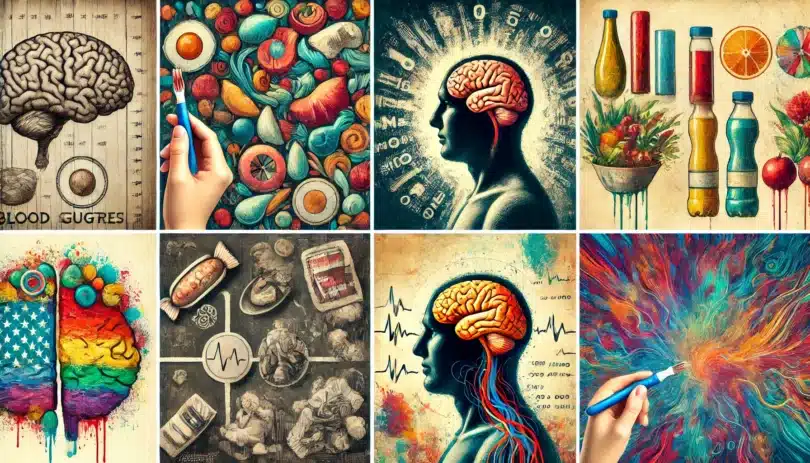Recent research has uncovered a crucial connection between blood sugar fluctuations after eating and their impact on mental health, particularly anxiety and depression. The study emphasizes how the body’s response to consuming carbohydrates and sugars can significantly influence mood and mental well-being. This discovery adds a new layer of understanding to the complex relationship between diet and mental health, suggesting that managing blood sugar levels could be an essential part of treating anxiety and depression.
The Connection Between Blood Sugar and Mental Health
When carbohydrates and sugars are consumed, they cause an immediate rise in blood sugar levels, prompting the release of insulin. Insulin helps to regulate these levels by moving glucose into cells for energy. However, consuming high-glycemic foods like white bread, sugary snacks, or processed carbohydrates can lead to rapid spikes in blood sugar, followed by sharp drops. These fluctuations can trigger the release of stress hormones such as adrenaline, which can contribute to feelings of anxiety, irritability, and depression.
How Blood Sugar Affects Mood
The body’s reaction to blood sugar fluctuations doesn’t just impact physical health; it has a profound effect on mental well-being as well. The gut-brain axis—the communication network between the gut and the brain—plays a critical role in this process. When blood sugar levels drop after a spike, the body releases adrenaline to compensate, which can lead to mood swings, anxiety, and even panic attacks. This physiological response is particularly concerning for individuals with pre-existing mental health conditions, as it can exacerbate symptoms of anxiety and depression.
Dietary Strategies for Stabilizing Blood Sugar
Managing blood sugar levels through diet is an effective way to support mental health. Incorporating low-glycemic index foods such as whole grains, legumes, and vegetables can help maintain stable blood sugar levels, thereby reducing the risk of mood swings. Additionally, pairing carbohydrates with proteins or healthy fats can slow down the absorption of glucose, preventing sharp spikes and crashes in blood sugar. For example, eating a salad with olive oil and vinegar before consuming carbohydrates can significantly reduce the blood sugar response, promoting more stable energy levels and mood.
The Implications for Anxiety and Depression Management
The link between diet and mental health underscores the importance of considering blood sugar management as part of a holistic approach to treating anxiety and depression. While traditional treatments like medication and therapy are essential, dietary modifications offer a non-invasive, supportive strategy that can enhance overall mental well-being. By focusing on foods that stabilize blood sugar levels, individuals may experience fewer mood fluctuations, leading to more consistent emotional health.
Why This Matters
Understanding the impact of blood sugar fluctuations on mental health is particularly important in today’s fast-paced, often stress-filled environment. As more people seek out non-pharmacological ways to manage anxiety and depression, dietary changes that promote stable blood sugar levels could become a valuable tool. This approach not only supports mental health but also contributes to overall physical well-being, making it a comprehensive strategy for improving quality of life.
Conclusion
Blood sugar fluctuations after eating play a significant role in influencing anxiety and depression. By recognizing and managing these fluctuations through strategic dietary choices, individuals can better support their mental health. As research continues to explore this connection, diet may become an even more integral component of mental health care, offering a simple yet effective way to enhance mood stability and overall well-being.
Sources:

